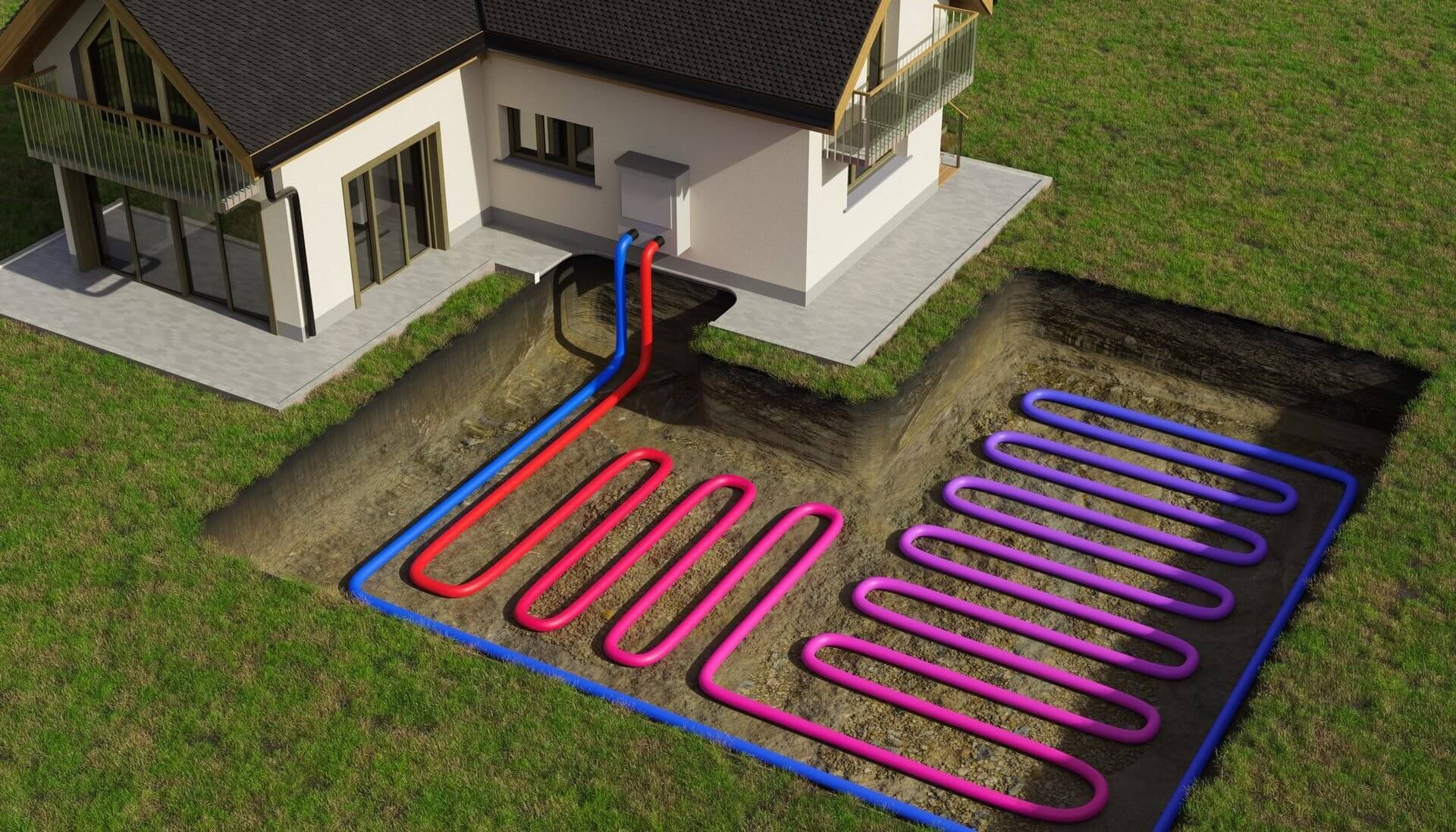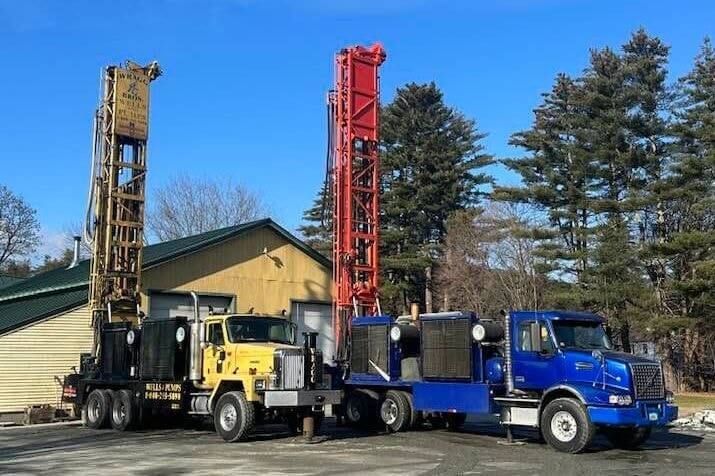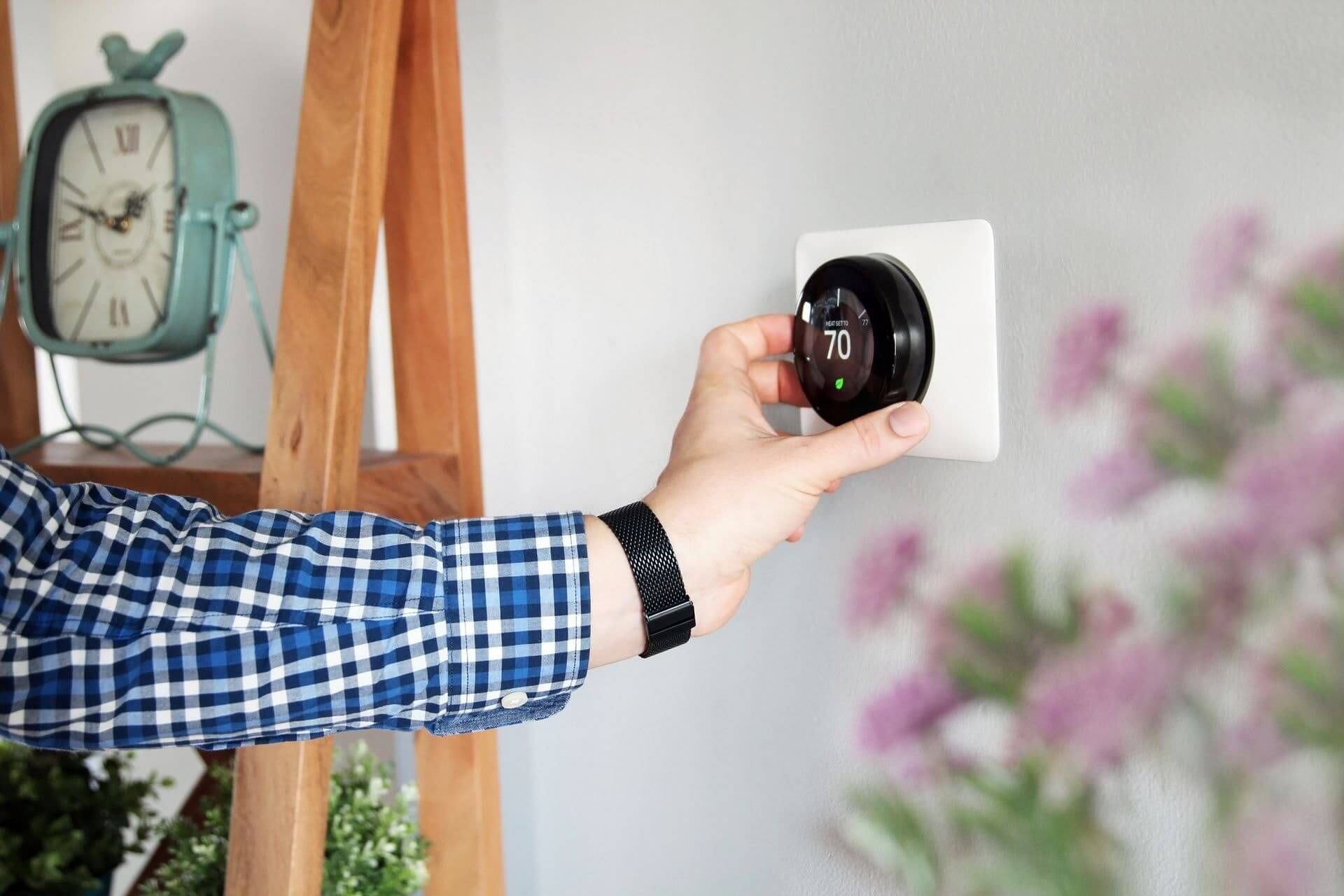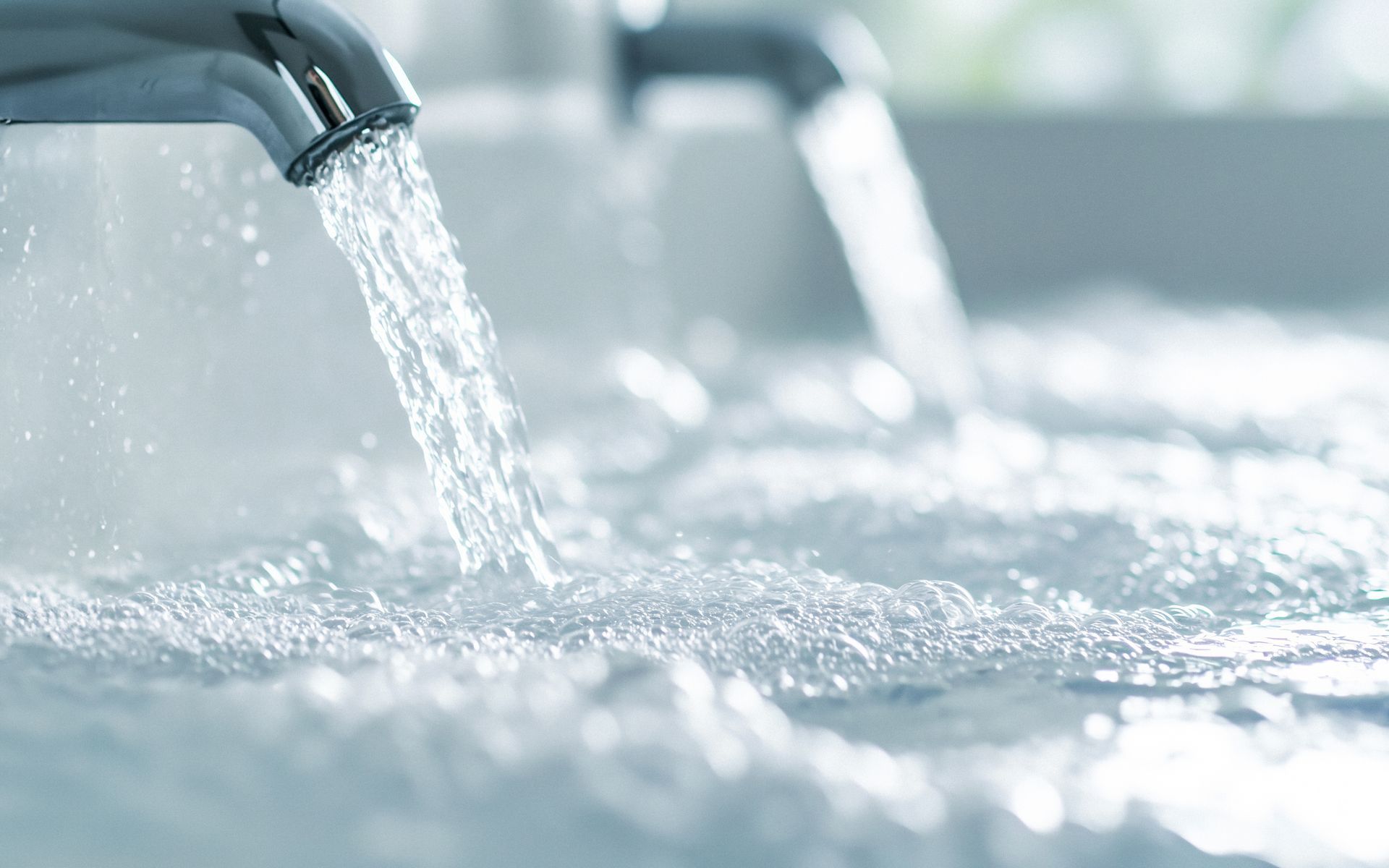Water treatment, water testing, well drilling and hydro-fracking services for VT, NH, and MA.
Do you need emergency well water service?
The Lifespan of Geothermal Systems: How Long Does Geothermal System Last?
If you’re wondering, “How long does a geothermal system last?” the answer is quite impressive. Geothermal heat pumps generally have a lifespan of 20-25 years, with underground loops capable of lasting over 50 years. In this article, we’ll discuss the key components, factors affecting longevity, and maintenance tips to help you get the most from your system.
Key Takeaways
- Geothermal systems consist of ground loops, heat pumps, and distribution systems, offering efficient heating and cooling by harnessing the earth’s natural heat.
- Geothermal heat pumps typically last 20-25 years, while properly installed ground loops can exceed 50 years, resulting in lower long-term costs compared to traditional HVAC units.
- Key factors affecting the lifespan of geothermal systems include proper installation, regular maintenance, and environmental conditions, all of which greatly enhance system durability.
Key Components of Geothermal Systems
Geothermal systems consist of three primary components: ground loops, geothermal heat pumps, and indoor components distribution systems. These elements work together to harness the earth’s natural heat and efficiently distribute it throughout your home.
Ground loops are the backbone of any geothermal system. These loops, which are typically buried underground, absorb heat from the earth and transport it to the geothermal heat pump. The stable temperature of the ground, usually around 62 degrees Fahrenheit at depths over 20 feet, significantly enhances the efficiency of geothermal systems. This stability allows geothermal systems to operate more efficiently than air-source heat pumps, which rely on fluctuating air temperatures. Additionally, a ground source heat pump can further optimize this process.
The geothermal heat pump then moves this heat from the ground and distributes it throughout the building, providing both heating and cooling depending on the season. Geothermal heat pumps extract heat at temperatures between 50-55 degrees Fahrenheit, raising it to comfortable indoor levels and ensuring a consistent climate. Liquid refrigerants aid this process by exchanging heat with the water-based solution within the loops, enhancing system efficiency.

Typical Lifespan of Geothermal Systems
Geothermal systems are notable for their long lifespan. Geothermal heat pumps typically last around 20-25 years, significantly longer than the 13-year average for traditional HVAC units. This results in fewer replacements and reduced long-term costs for homeowners.
The ground loop component of a geothermal system is even more impressive in terms of durability. Properly installed and maintained loops can last over 50 years, with some estimates suggesting they can exceed 100 years. This durability stems from the resilience of the materials and the protection afforded by being buried underground.
Overall, the combined lifespan of geothermal heat pumps and ground loops makes geothermal systems a more durable solution than conventional HVAC systems. This extended life expectancy offers both financial benefits and a reduced environmental impact due to fewer replacements.
Factors Affecting Geothermal System Longevity
Several factors can influence the longevity of a geothermal system. Correct installation is crucial for efficient operation and longevity, and engaging experienced professionals ensures precise system sizing and installation.
Regular maintenance is also essential. Promptly repairing leaks or cracks in the piping can significantly extend the system’s lifespan. Closed-loop systems generally need less maintenance than open-loop systems, making them a more reliable choice for long-term use.
Soil characteristics and fluid chemistry in the installation area can also affect the system’s longevity. Since most components are buried in underground pipes, they are less prone to environmental damage, further extending their useful life.
Comparing Geothermal Systems to Traditional HVAC Units
Geothermal systems have several advantages over traditional HVAC units, with one of the most significant being their longer lifespan. Traditional HVAC systems typically last 10 to 20 years, whereas geothermal systems can last much longer, with heat pumps averaging 20-25 years and ground loops exceeding 50 years.
Geothermal heat pumps can achieve efficiency rates of up to 400%, compared to the 98% efficiency of high-efficiency furnaces. This means geothermal systems can produce three to four times more heating energy than the electricity they consume, resulting in substantial cost savings on heating and cooling bills.
Geothermal systems also improve indoor air quality by eliminating carbon monoxide risks and reducing the need for external venting. They require less space than traditional HVAC solutions, making them more environmentally friendly. Overall, a geothermal hvac system offers long-term economic and environmental advantages over traditional HVAC units.
Maintenance Tips for Extending Geothermal System Life
Proper maintenance is crucial for extending the life of your geothermal system. Perform regular monthly visual checks to identify any leaks, unusual noises, or wear. Scheduling professional maintenance can help detect and address potential issues early, ultimately reducing repair costs.
Keeping air filters clean or replacing them regularly is vital, as dirty filters can hinder efficiency and stress system components. Additionally, trimming surrounding vegetation helps maintain proper airflow and prevents damage to the geothermal unit.
Inspecting and sealing any gaps in ductwork can enhance system efficiency and improve indoor air quality. Regular pressure checks and fluid level assessments by HVAC professionals are also important to ensure the system operates within recommended parameters. Following these maintenance tips will help maximize the efficiency and longevity of your geothermal system.

The Role of Proper Installation
The quality of installation significantly affects the lifespan of geothermal systems. Engaging experienced professionals like Wragg Brothers Well Drilling ensures proper installation, minimizing future issues and enhancing longevity.
Proper installation includes accurately sizing the system for optimal geothermal energy efficiency and ensuring ground loops are correctly installed to last over 50 years. This boosts the system’s effectiveness and minimizes disruptions to existing landscaping.
If you’re considering installing a geothermal system for your home, contact Wragg Brothers Well Drilling. With their expertise, you can be confident that your system will be installed to the highest standards, providing reliable and efficient heating and cooling for years to come.
Cost Considerations for Geothermal System Installation and Replacement
The initial costs of installing a geothermal heating and cooling system can be substantial, but they represent an investment in long-term savings and environmental benefits. The average price for installing a geothermal system is around $24,500, with costs ranging from $8,000 to $24,000 depending on the property’s specific requirements.
Equipment costs for geothermal systems include heat pumps priced between $4,000 and $7,000, and yardwork costs, such as excavation and trenching for the geothermal loop, typically range from $5,000 to $15,000. Additionally, ductwork installation costs can average between $2,000 and $6,000, while permit fees can vary from $100 to over $1,000 depending on local requirements.
Despite the upfront costs, the long-term benefits of geothermal systems, such as reduced energy bills and lower maintenance costs, make them a worthwhile investment. Professional installation is essential for realizing these benefits and avoiding costly repairs later.

Environmental Benefits of Geothermal Heating and Cooling
Geothermal systems offer significant environmental benefits by reducing greenhouse gas emissions and eliminating the need for on-site fossil fuel combustion. By harnessing the earth’s natural heat, geothermal heating helps protect against fluctuating fossil fuel prices and enhances energy security.
Geothermal energy is a sustainable and environmentally friendly source of energy, providing safe, reliable, and energy-efficient heating and cooling from one piece of equipment. Remarkably, geothermal energy is an unlimited resource, offering a consistent and efficient solution for heating and cooling needs.
Compared to traditional HVAC systems, geothermal systems are more environmentally friendly, reducing dependence on fossil fuels and lowering overall energy consumption. This not only helps save money on energy bills but also contributes to a healthier planet.
Summary
In conclusion, geothermal systems offer numerous benefits over traditional HVAC units, including longer lifespans, higher efficiency, and significant environmental advantages. Proper installation and regular maintenance are crucial to maximizing these benefits and ensuring the longevity of the system.
If you’re considering a geothermal system for your home, it’s essential to engage experienced professionals like Wragg Brothers Well Drilling to ensure proper installation and long-term reliability. By investing in a geothermal system, you’re not only making a wise financial decision but also contributing to a more sustainable and environmentally friendly future.
Frequently Asked Questions
What is geothermal energy?
Geothermal energy is power derived from natural heat stored on Earth. It harnesses this energy for various applications, including electricity generation and heating.
How do geothermal systems work?
Geothermal systems operate by drilling wells into the earth to access heat, which is then transferred through fluid-filled loops back to your home using a geothermal pump. This efficient method harnesses natural heat from the ground for heating and cooling.
What are the benefits of geothermal drilling for homes?
Geothermal drilling offers a sustainable and eco-friendly energy source for homes, significantly reducing energy costs over time. This method not only contributes to lower utility bills but also minimizes environmental impact.
How long do geothermal systems last?
Geothermal systems typically last 20-25 years for heat pumps, while ground loops can exceed 50 years and may even reach 100 years with proper maintenance. This longevity makes geothermal an excellent investment for sustainable energy solutions.
Why is proper installation important for geothermal systems?
Proper installation is crucial for geothermal systems because it guarantees efficient operation and extends the system's lifespan, reducing the risk of future problems. This foundation lays the groundwork for optimal performance and reliability.
All Rights Reserved | Wragg Brothers Well Drilling


